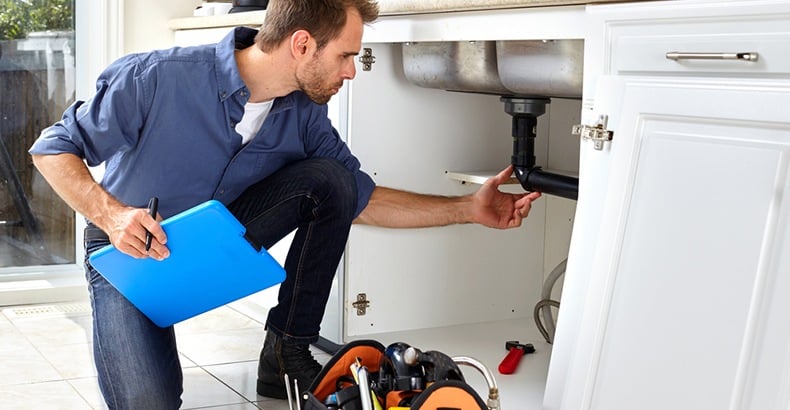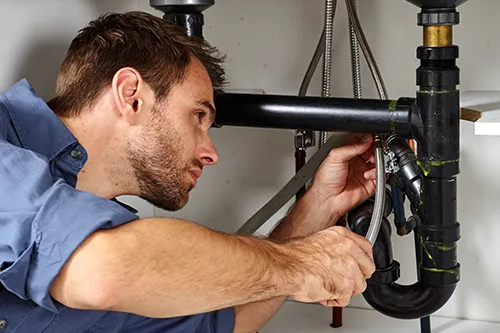6 Behaviors You Must Avoid To Save The Plumbing
6 Behaviors You Must Avoid To Save The Plumbing
Blog Article
Just how do you actually feel when it comes to Can Hard Water Ruin Your Appliances??

The secret to durable appliances, unsurprisingly, is proper maintenance. There's no set policy that can assure your plumbing devices a long wear, but you can stop unnecessary damage and also repair services by preventing negative plumbing behaviors.
You must stop doing these 6 things else you'll maintain calling your plumber over for minor faults.
Flushing everything
Yes, your bathroom drainpipe causes the drains, but that doesn't mean you must dump simply anything down the drain. Lots of 'flushable' products are in fact terrific obstruction starters, for example dental floss. Asides maintaining evident non-flushable products like cables as well as plastics out of your toilet, you need to also avoid flushing cotton buds, menstrual items, wipes, daipers and condoms down the toilet drainpipe.
Pouring oil in the sink
We understand effectively getting rid of oil after a hearty meal is a discomfort. However just pouring it away can do lasting injury to your pipelines. "The fat and grease can obstruct your drainpipe badly adequate to force you to call a plumber," clarifies Dawson. "Plumbing functions best when it's well looked after-- not abused with oil."
Utilizing excessive drainpipe cleaner
Making use of a drainpipe cleaner more than one or two times a month is an indication that something serious is taking place within your pipes. Now, as opposed to dealing with the primary issue, you go for a quick fix; a fizzy drainpipe cleaner. Rightfully, a drainpipe cleaner will care for the clog, however at what cost?
The chemicals in a drainpipe cleaner can speed up the rust of your pipelines. Add that to whatever underlying problem is triggering the obstruction as well as you might have to a major issue on your hands.
If you experience a lot of blockages, call your emergency plumber instead of making use of a drainpipe cleaner.
Not rinsing dishes prior to filling them right into the dishwashing machine
it's called a dish washer, however tossing in recipes, pots, as well as pans covered in huge food fragments can really trigger some major damage to the home appliance, bring about lasting problems down the line. "Home owners might have to get their dish washer fixed more often if they do not wash their meals prior to loading, or a minimum of remove larger food pieces," describes Audrey Monell, proprietor of Forrest Anderson Plumbing as well as AC in Glendale, Arizona. "Food that gets stuck on dishes triggers the dishwashing machine to work harder, which can wear down components much faster, resulting in troubles."
DIYing everything
With plumbing, a stitch in time really does save nine. You can avoid a fullblown plumbing emergency by calling your plumber at the right time.
You may have learnt a couple of plumbing hacks from your dad, however you should certainly know where to fix a limit and also call a specialist. For example, you may be able to deal with an obstruction on your own, however you should not attempt to transform a pipe. You can mismatch pipelines or overtighten a screw, creating more injury as well as damage than you believed. Calling a plumber is a safe and also inexpensive choice.
Not altering your dishwashing machine pipes
One easy method to guarantee that you use your dishwashing machine for several years is to replace the pipe a minimum of once in five years. This likewise obtains cleaning maker hoses.
In time, food particles, soap and also oil can develop blockages within your pipelines. Changing them on time will certainly protect against any kind of presure build up that can harm the inner functions of your dishwashing machine or cleaning maker.
A strengthened steel intertwined pipe does a wonderful work of prolonging your maker's use time.
No winter season precautions
Extreme climate condition are bad for your pipelines, especially if they're made of steel. You must insulate your exposed pipes, and also your water container, even if you have a hot water heater. You must also turn off your yard tube valve and any other exterior water channels. These channels are outlets for chilly; you pipelines can begin to freeze from outside if you don't.
Prevent Water Damage from Plumbing and Appliances
Prevent toilet failure
Be patient after you flush and wait for the valve to completely finish refilling the tank and bowl. If an overflow looks imminent, lift off the tank cover and lift the float to shut off water flow to the tank, and then turn off the supply valve.
Twice a year, inspect a toilet’s components, such as the fill, supply, and flush valves, and the supply line. Make sure you can turn off the supply. If you have older screw type valves that are hard to turn or start leaking, consider replacing them with simpler ball valves that are easy to shut off quickly.
Inspect and maintain your water heater
Inspect your anode rod every two years, or every year once the warranty has expired, to determine if it needs to be replaced.
Flush water heater tanks every six months to remove sediment by attaching a garden hose to the valve at the base. For safety, first turn off the power and run hot water until it is cool.
Get an annual inspection from a plumbing professional including the shut-off valve and all piping. Signs of broken valves and loose or wet joints and rust are a sign that more severe damage is coming.
Maintain washing machine supply lines
Look for signs the supply hose may be ready to fail—blisters in the hose, worn tubing, stress cracks, or a loose connection.
Replace the supply hose with a reinforced steel braided hose if it shows any sign of wear.
Tighten the connection if it feels loose. The most common site of failure is near the connection where the hose bends.
Replace supply hoses every five years, even if there is no obvious deterioration or wear. Some signs of deterioration may occur from the inside out and may not be visible until it is too late. When replacing washing machine supply hoses, always choose a reinforced steel braided hose over the traditional un-reinforced rubber hose. These hoses will last longer and are far less likely to result in a catastrophic water loss.
Prevent plumbing failure
Never pour grease down the drain.
Plant trees away from lateral drain lines to prevent roots from damaging piping.
If your home’s sewer system is connected to the city’s sewer system—a particular problem for older homes—or if you are located downhill or below street level, contact a plumbing professional to install a backflow prevention assembly into your sewer system.
Call a professional if you notice signs of a plumbing problem—an increased monthly water bill, banging pipes, rust stains, moisture in the walls or on the floor, and signs of wet soil erosion near the foundation.
https://disastersafety.org/maintenance/prevent-water-damage-from-plumbing-and-appliances/

I found that review on Can Hard Water Ruin Your Appliances? while browsing the search engines. If you appreciated our article if you please remember to share it. I take joy in reading our article about Can Hard Water Ruin Your Appliances?.
Book Today Report this page